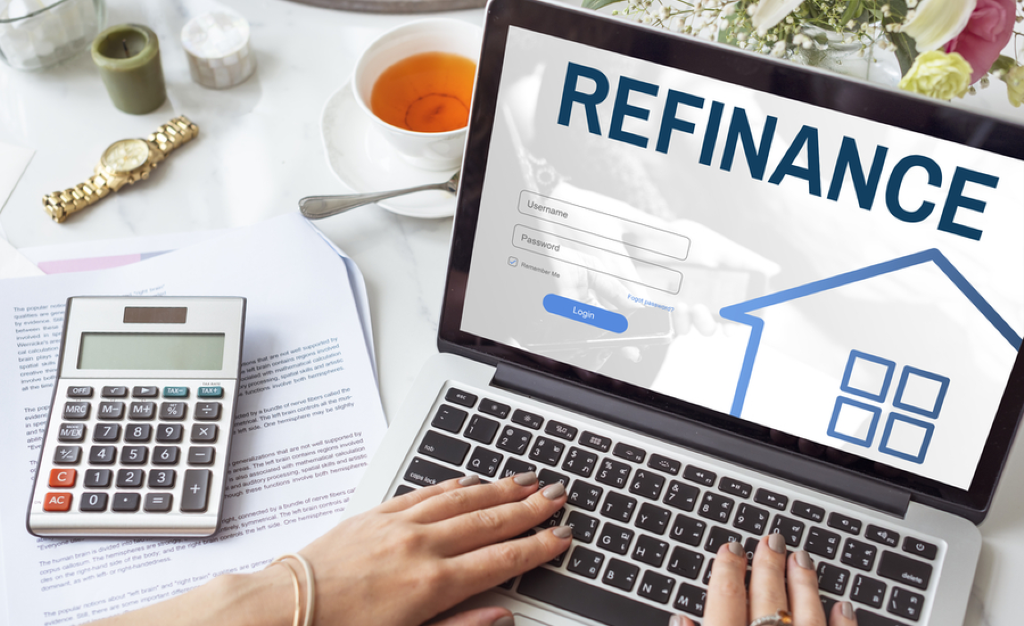Should I Refinance My Home?

- Refinancing is beyond your rate or your monthly payment, as several other factors are essential to consider.
- Closing costs are one factor you should consider when deciding whether or not you should refinance.
- It is essential to do the refinancing math yourself and not rely on your lender to decide for you entirely.
With everyone talking about the increase in housing prices and the need to refinance right now, it can be tempting to jump on the bandwagon. Refinancing your mortgage is not a decision to be taken lightly. No matter how many times a company claims they can get you a “great rate” or “lower your payment.”
Refinancing has a lot of implications for your financial future that should be thought out and considered. So before agreeing to refinance, it is essential to consider whether that refinance is better for you.
Things to Consider When Refinancing Your Home
Adjustable-Rate vs. Fixed Rate
There are two different types of mortgages: adjustable-rate mortgages and fixed-rate mortgages.
An adjustable-rate mortgage means the mortgage's interest rate adjusts or changes over time. A fixed-rate mortgage is when the interest rate does not change.
In general, a fixed rate is better than an adjustable rate because you know how much you’ll be paying in interest every year. However, it’s essential to know that your monthly payment will not change. So as long as getting a fixed rate isn’t significantly higher than your current adjustable rate, it is generally a good idea to refinance from an adjustable-rate mortgage to a fixed-rate mortgage when possible.
Interest Rate
The other obvious thing to consider is your interest rate. Refinancing to get a lower interest rate can be incredibly beneficial both short and long term. In general, if you can get a significantly lower interest rate, then refinancing is a great way to save money. When you have a lower interest rate, it makes a huge difference.

Image Credit: Emilie Zhang / Shutterstock.com
Some banks will try to get you to refinance for .25% lower interest rates or something insignificant like that. But, to put it in context, the annual difference in payments on a one million dollar loan for .25% is less than $200 a month.
Most loans are considerably less than that. The costs associated with getting a new loan make refinancing for a .25% rate drop almost pointless. In those situations, you would need to consider your closing costs.
Closing Costs
The way that loan officers make money is by charging a fee to process your loan. Among other things, those fees create closing costs. Closing costs may be out of pocket or added to the loan as part of the refinance process.
Let’s say you have a $100,000 loan and you want to refinance for that .25% lower rate. Your principal and interest payment would drop from $506 to $491 per month. This amounts to a savings of a total of $180 per year.
The cost to refinance a loan, on the other hand, could be between 2-6%, which, if you get lucky, you will only pay $2,000, 2% of $100,000, in closing costs. With your reduced payment, it will take you over 11 years to make up those costs ($2,000 / $180 a year = 11 years).
That means that if you get charged 6% in closing costs, you won’t even recoup those costs by “saving” on payments over a 30-year loan. So, unless you need to save that monthly payment right now, closing costs could make refinancing not worth it.
The simple formula takes the closing costs and divides them by your monthly savings. That will calculate the number of months it will take to repay the closing costs. Once you know the number of months to repay, you need to consider your time horizon.
Time Horizon
Your time horizon is all about how long you will be making payments on a house. If the closing costs from your refinance cost 36 months in savings, and you sell your home after 24 months, then you’ve lost money.
Owning a home is a long-term move that people do for surprisingly short periods. Therefore, the less time you will own your house, the less likely refinancing will pay for itself. Another reason that your time horizon matters is the term of the loan.
Term
A loan term is how long you have to pay back the loan in full (including interest). This is usually over 15 or 30 years, but 20 years is also not unheard of.
In most cases, refinancing equates to starting your term over again. For example, you would be 25 years away from paying off your loan if you’re on a 30-year mortgage and you’ve been paying for five years. However, if you refinance to save $50 a month, your term will restart in 30 years.
Besides having a mortgage five years longer, there is another reason this could be problematic. Not only does the number of years you pay restart, but so does the interest payments.
In an amortized loan such as a mortgage, the interest costs are steep upfront rather than in the end. So if you’re paying $1,000 a month in principal and interest, your first payment could be something like $750 interest and only $250 principal.
After five years, you would be paying $300 or $400 a month in principal payments causing your loan paydown to be that much faster. If you refinance, you could be back to paying closer to $250 in principal.
If you end up selling your house two or three years after refinancing, the amount of money back in your pocket would be less than if you hadn’t refinanced.
Private Mortgage Insurance (PMI)
Many people go out of their way to refinance to get rid of Private Mortgage Insurance (PMI). Your closing costs are an essential factor in this situation. Consider how much you will be paying in closing costs to refinance. It may not be worth it to get rid of PMI if closing costs are high and your time horizon is low.
Should You Refinance?
Owning a home is supposed to be a long-term decision, but we’ve turned it into a short-term one. If you are sure you will be in or own your home for the long term, then the impact of the decision to refinance will be more positive than negative in general.

Image Credit: Rawpixel.com / Shutterstock.com
However, if you aren’t going to be in your house for more than 7 or 10 years, refinancing will most likely hurt you. Paying closing costs, having interest payments restart, and getting little savings from month to month add up.
Before deciding to refinance, it is always important to calculate how it will impact your financial future and not just your monthly payment.
Main Image Credit: Vitalii Vodolazskyi / Shutterstock.com